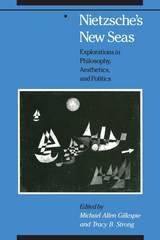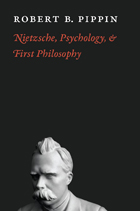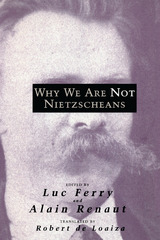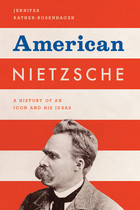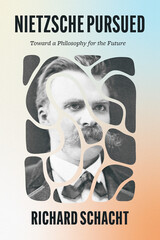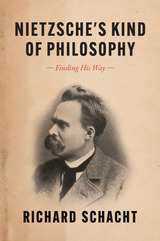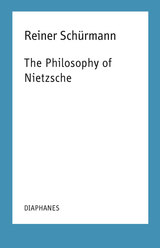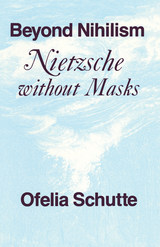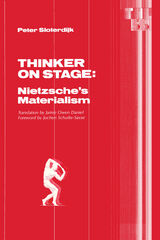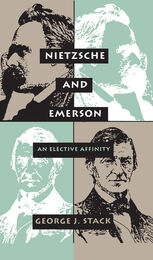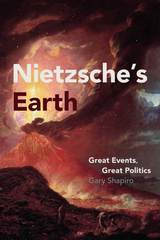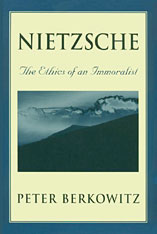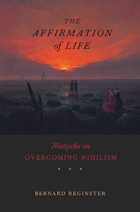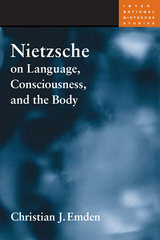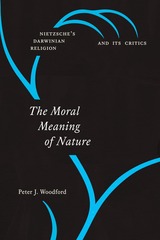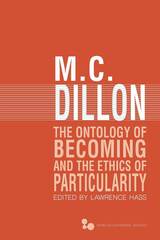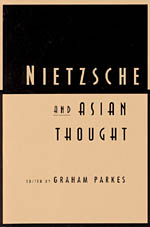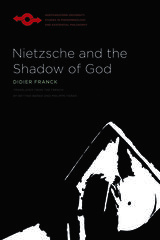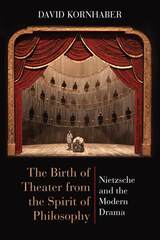Nietzsche's Corps/e: Aesthetics, Politics, Prophecy, or, the Spectacular Technoculture of Everyday Life
Duke University Press, 1996
Cloth: 978-0-8223-1709-8 | Paper: 978-0-8223-1719-7 | eISBN: 978-0-8223-9983-4
Library of Congress Classification B3317.W32 1996
Dewey Decimal Classification 193
Cloth: 978-0-8223-1709-8 | Paper: 978-0-8223-1719-7 | eISBN: 978-0-8223-9983-4
Library of Congress Classification B3317.W32 1996
Dewey Decimal Classification 193
ABOUT THIS BOOK | AUTHOR BIOGRAPHY | REVIEWS | TOC
ABOUT THIS BOOK
Appearing between two historical touchstones—the alleged end of communism and the 100th anniversary of Nietzsche’s death—this book offers a provocative hypothesis about the philosopher’s afterlife and the fate of leftist thought and culture. At issue is the relation of the dead Nietzsche (corpse) and his written work (corpus) to subsequent living Nietzscheanism across the political spectrum, but primarily among a leftist corps that has been programmed and manipulated by concealed dimensions of the philosopher’s thought. If anyone is responsible for what Geoff Waite maintains is the illusory death of communism, it is Nietzsche, the man and concept.
Waite advances his argument by bringing Marxist—especially Gramscian and Althusserian—theories to bear on the concept of Nietzsche/anism. But he also goes beyond ideological convictions to explore the vast Nietzschean influence that proliferates throughout the marketplace of contemporary philosophy, political and literary theory, and cultural and technocultural criticism. In light of a philological reconstruction of Nietzsche’s published and unpublished texts, Nietzsche’s Corps/e shuttles between philosophy and everyday popular culture and shows them to be equally significant in their having been influenced by Nietzsche—in however distorted a form and in a way that compromises all of our best interests.
Controversial in its “decelebration” of Nietzsche, this remarkable study asks whether the postcontemporary age already upon us will continue to be dominated and oriented by the haunting spectre of Nietzsche’s corps/e. Philosophers, intellectual historians, literary theorists, and those interested in western Marxism, popular culture, Friedrich Nietzsche, and the intersection of French and German thought will find this book both appealing and challenging.
Waite advances his argument by bringing Marxist—especially Gramscian and Althusserian—theories to bear on the concept of Nietzsche/anism. But he also goes beyond ideological convictions to explore the vast Nietzschean influence that proliferates throughout the marketplace of contemporary philosophy, political and literary theory, and cultural and technocultural criticism. In light of a philological reconstruction of Nietzsche’s published and unpublished texts, Nietzsche’s Corps/e shuttles between philosophy and everyday popular culture and shows them to be equally significant in their having been influenced by Nietzsche—in however distorted a form and in a way that compromises all of our best interests.
Controversial in its “decelebration” of Nietzsche, this remarkable study asks whether the postcontemporary age already upon us will continue to be dominated and oriented by the haunting spectre of Nietzsche’s corps/e. Philosophers, intellectual historians, literary theorists, and those interested in western Marxism, popular culture, Friedrich Nietzsche, and the intersection of French and German thought will find this book both appealing and challenging.
See other books on: 1844-1900 | Aesthetics | Everyday Life | Nietzsche, Friedrich Wilhelm | Philosophy, Modern
See other titles from Duke University Press


